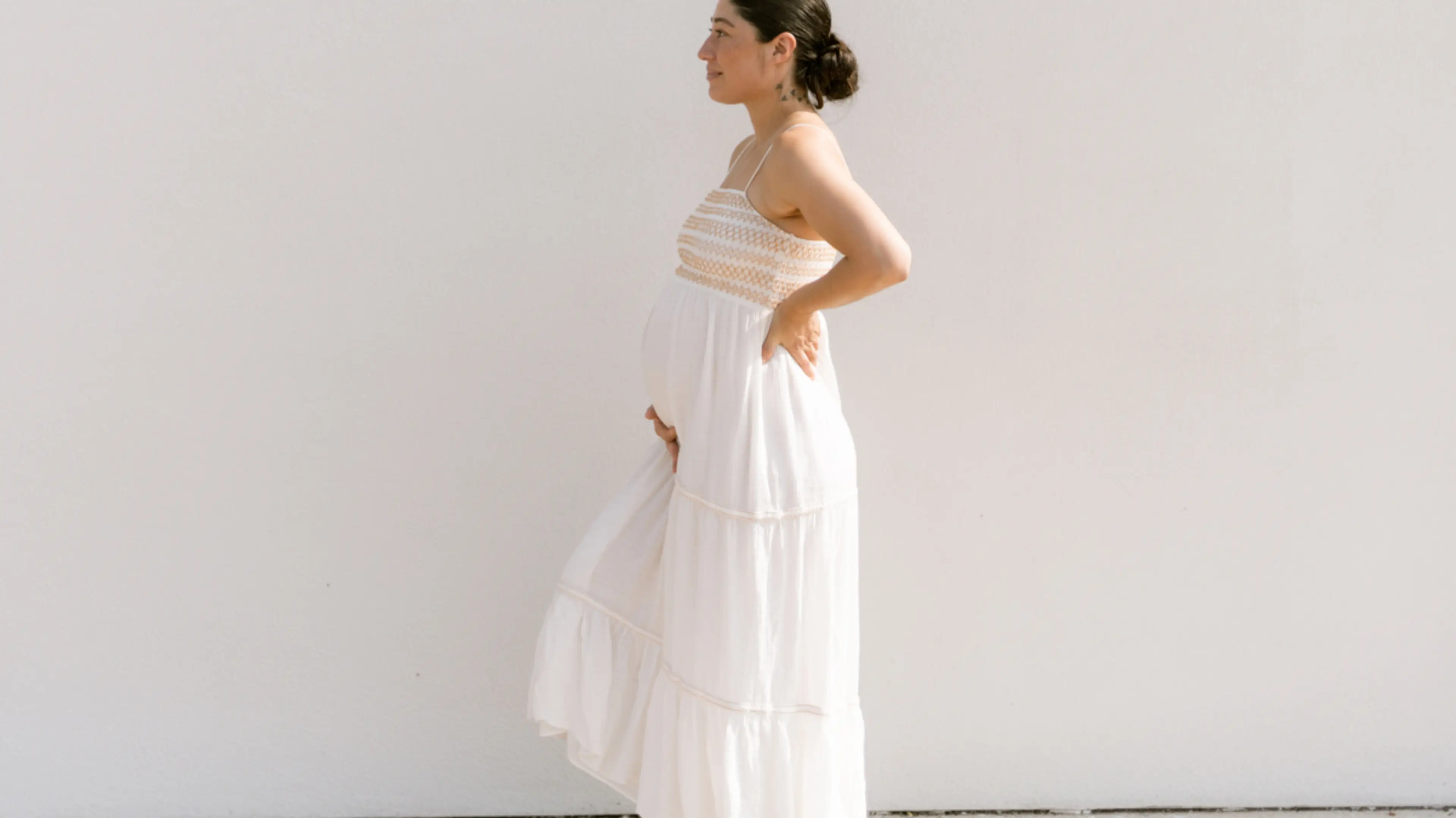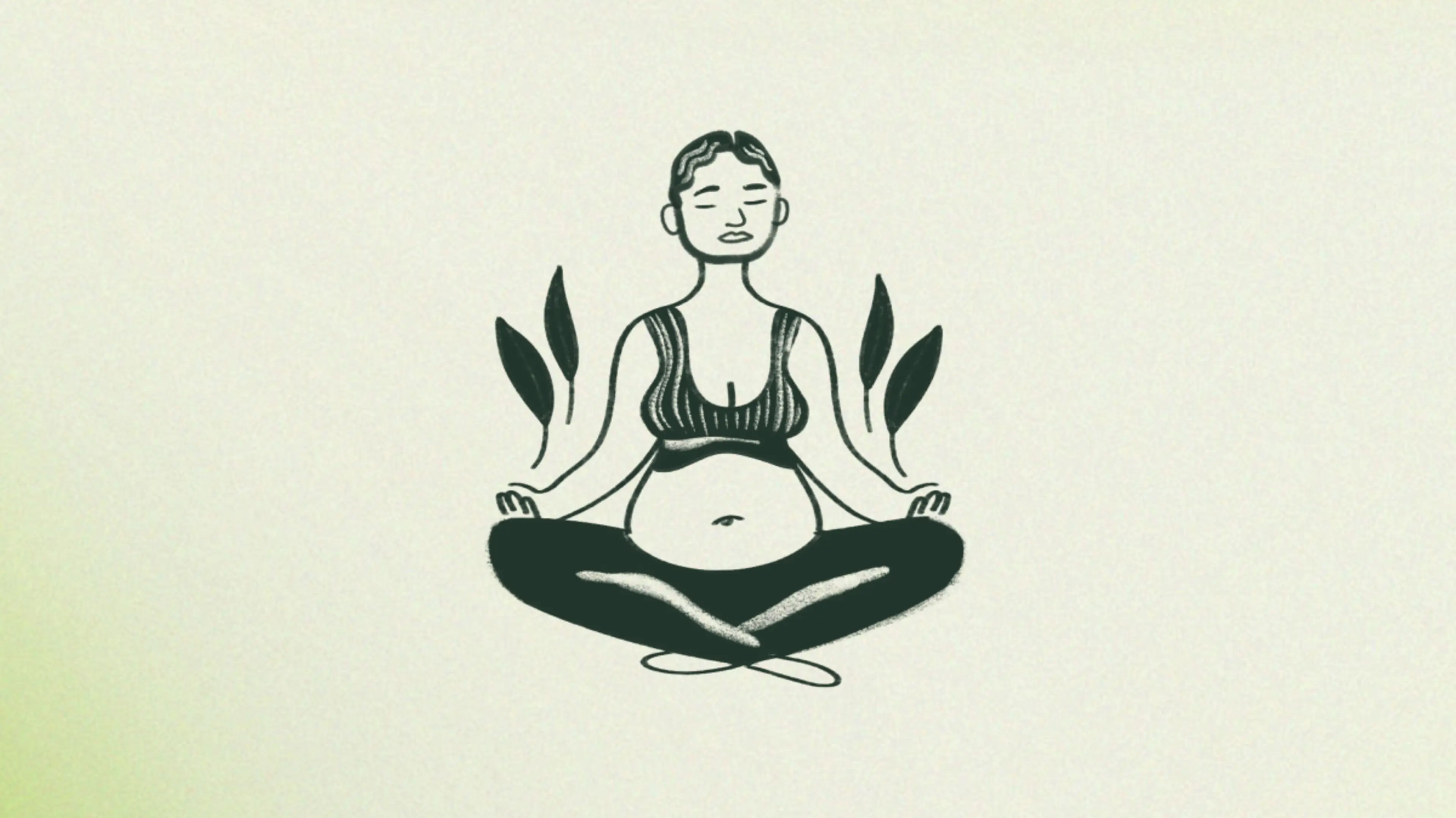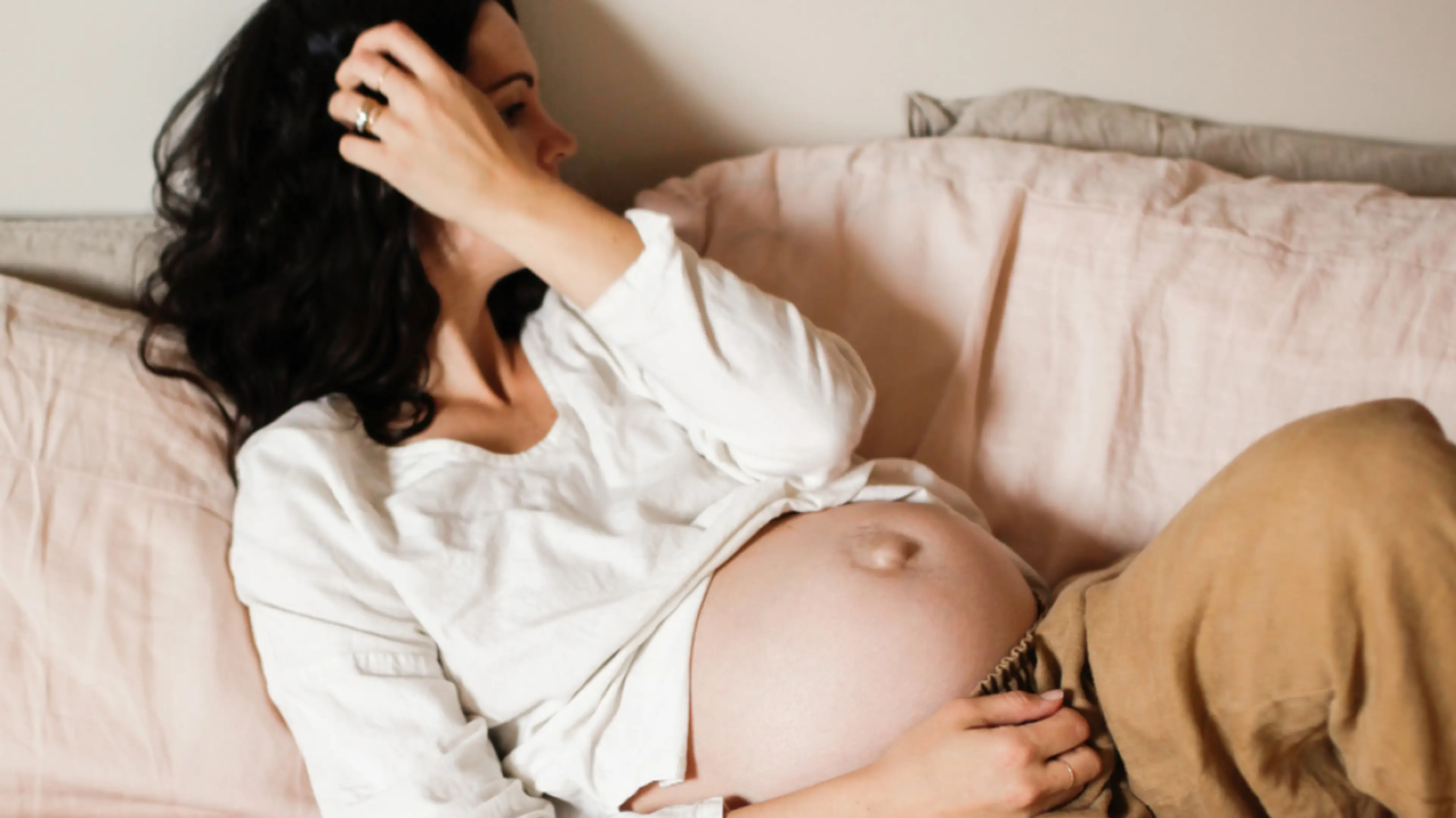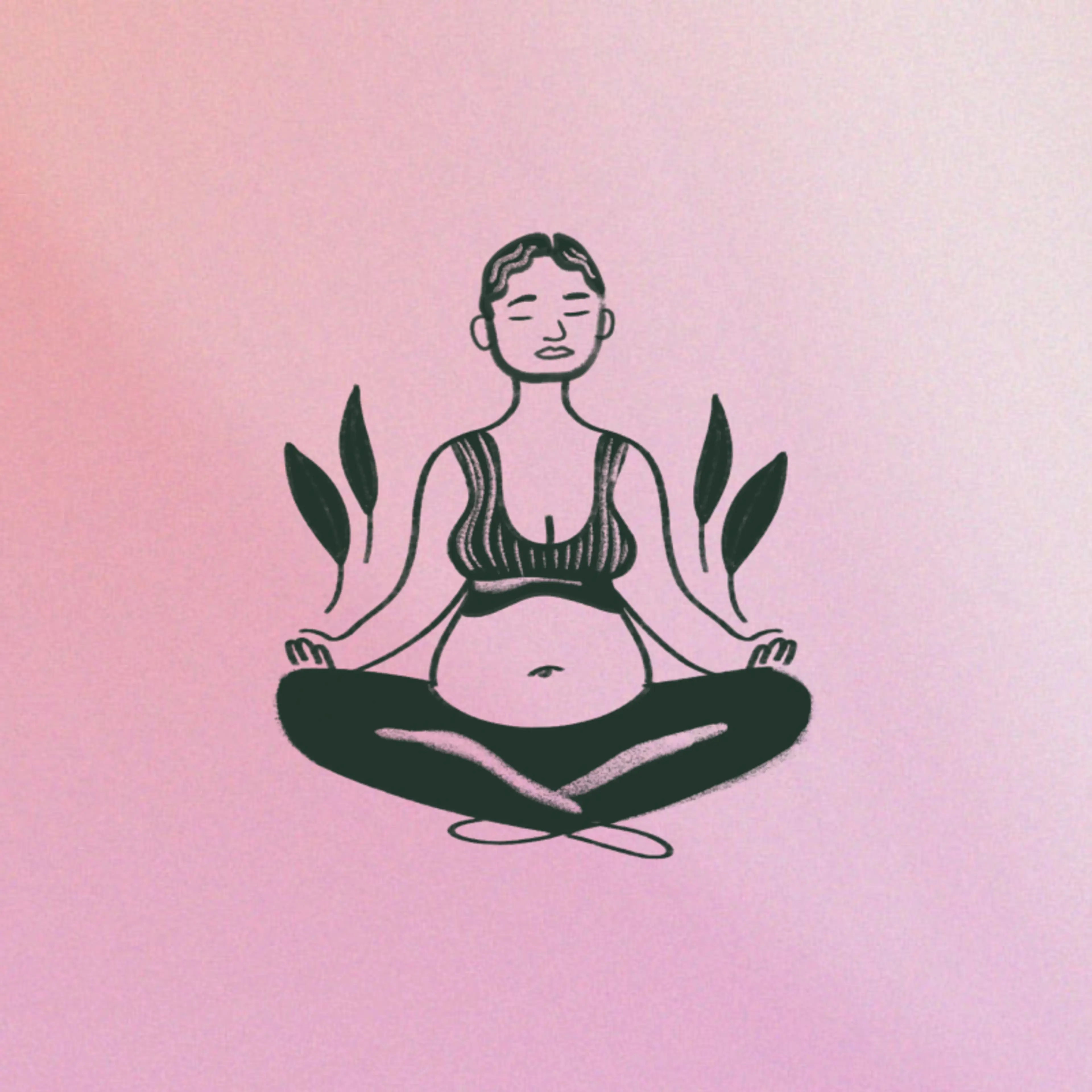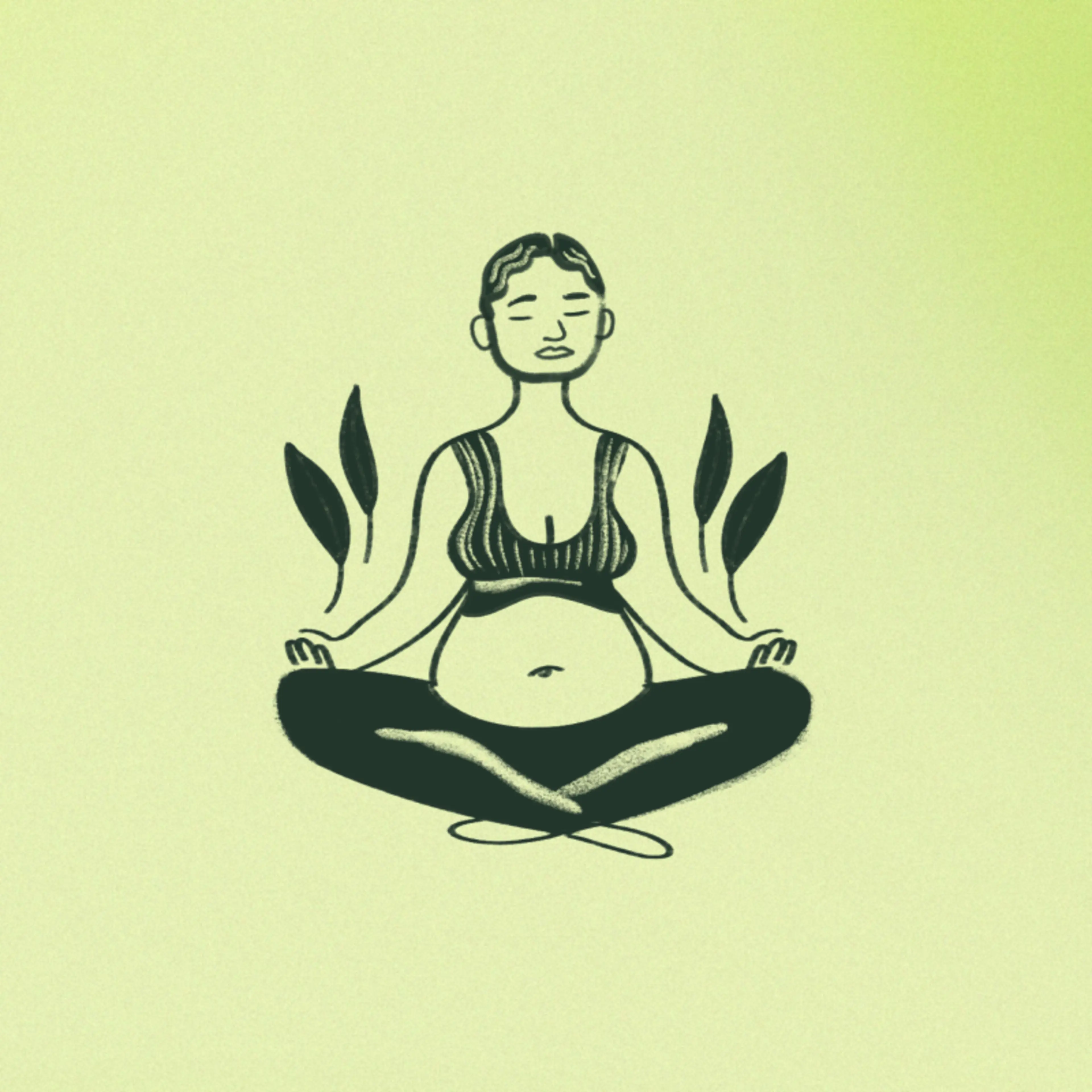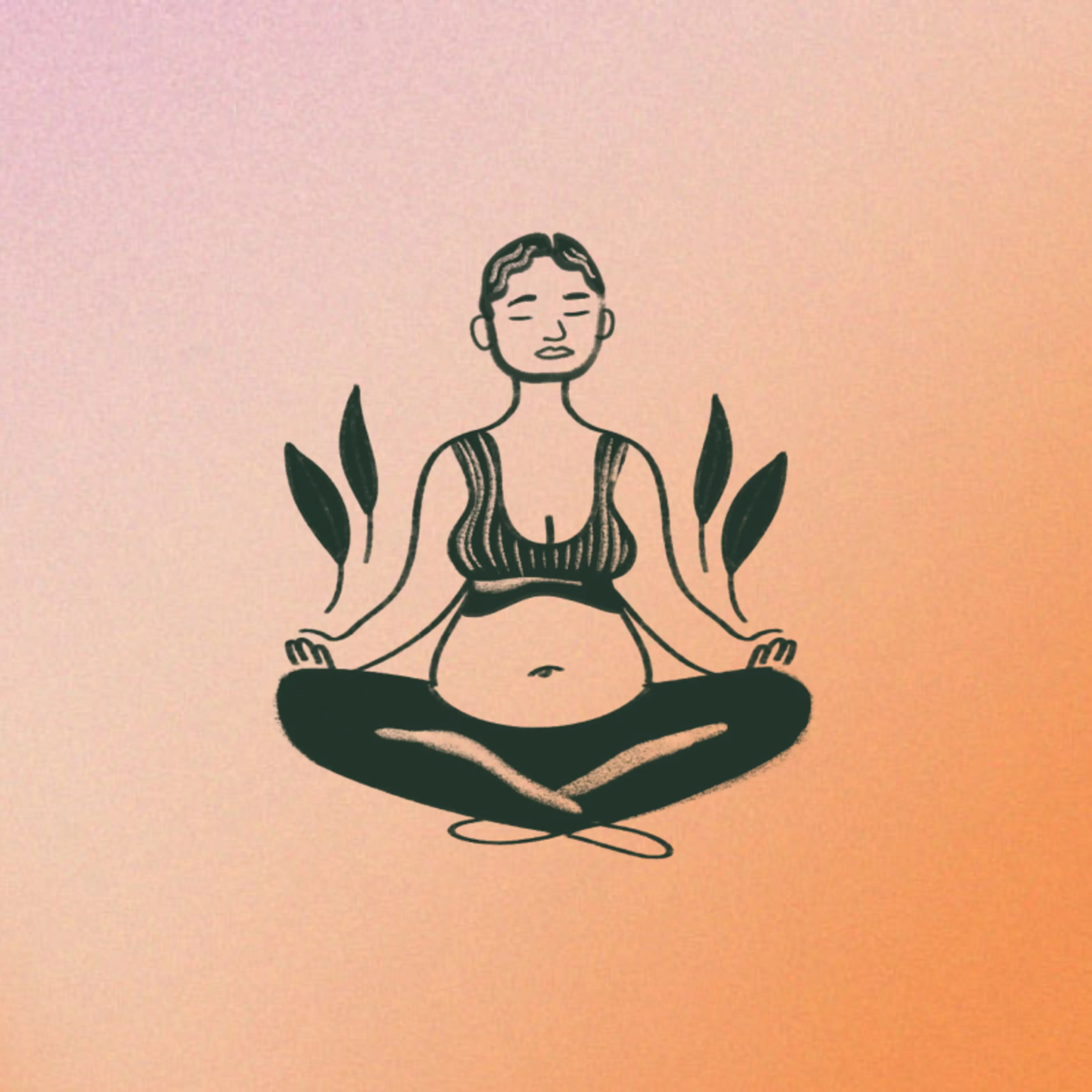Pregnancy is filled with happy moments like feeling your baby kick for the first time, shopping for newborn clothes and general excitement surrounding the little one’s new arrival. One thing that’s not so fun? Back pain. According to the American Pregnancy Association3 , pregnancy back pain affects roughly 50 to 70% of pregnant people. And despite many people assuming the all-too common side effect only occurs during the third trimester when the baby is the biggest, back pain can actually pop up at any point. Here’s everything you should know about pregnancy-related back pain along with tips on how to get some relief.
Is It Normal To Have Back Pain During Pregnancy?
The short answer: Yes. While the lower back is the most common area people experience pain, the upper back and shoulders can also experience discomfort in the form of pulling and pinching. Though it’s more likely to peak around 36 weeks pregnant, it can actually occur during any trimester. “Even though the baby isn’t too big in the first trimester, the back can still hurt due to the immediate hormonal changes that begin at conception, which can make the ligaments start to feel achy and sore,” says Karen Stoner4 , certified fertility, prenatal and infant massage therapist. “By the second and third trimesters, the pain is mostly attributed to the body’s changing shape as well as an increase in weight.”
What Are the Causes of Pregnancy Back Pain?
Anyone can experience back pain during pregnancy, but there are certain groups who may be at a higher risk. According to Dr. Sam Rahman, if you have a high body mass index, you’ve had back issues or disc herniations prior to becoming pregnant, you’ve had back pain in previous pregnancies or you regularly experience back pain during your normal menstrual cycle, you’re more prone to the side effect.
Here are a few other common causes of pregnancy back pain:
Weight gain: As pregnancy progresses, there’s an increase in not just the baby’s size, but in your blood volume, which can add to the standard pregnancy-related weight gain, Stoner says. “This weight gain can put extra stress on the bones, joints, and ligaments throughout the body, and since the back has attachments to pretty much every other part of the body, it is most affected by the stresses put everywhere else.”
Hormonal shifts: Fluctuating hormones can bring on a whole host of issues—back pain being one of them. The culprit at work here is relaxin2 , a hormone produced by the placenta during early pregnancy that’s responsible for loosening up the joints and ligaments to allow the body to make room for the growing baby, and to also prepare the hips and pelvis to “open up” for giving birth, Stoner says.
Pubic symphysis: Pubic symphysis, or the separation of the pubic bones, moreso hits the pelvis, legs, and hips, but can also be felt in the back as well.
Bad posture: The separation and stretching of the abdominal muscles from the uterus can create postural changes leading to a strain in the muscles around the spine, Dr. Rahman says.
Other children: If you’re pregnant and have other children, this can take a toll on your back. The constant picking up, holding, and carrying of the other children can lead to a sore back as your body copes with the external forces in addition to the pregnancy, Stoner says.
How Can I Relieve Back Pain During Pregnancy?
Back pain during pregnancy is common and will be different from pregnancy to pregnancy. While some people will escape with mild discomfort, others may deal with debilitating pain. Thankfully, there are several things you can do to make it more manageable:
Exercising/stretching: You don’t have to be a die-hard gym fiend to experience the benefits of exercising and stretching. Specifically, during pregnancy, it’s important to strengthen the core, stabilize the spine and improve the pelvic floor muscles. “This can be accomplished by exercises that stretch out your lower back, torso rotations, and pelvic floor muscle exercises”, Dr. Rahman says, highlighting that prenatal yoga can also be helpful. Aim for once a day, two to three times a week to improve back pain.
Prenatal massages: Massages from a certified prenatal therapist can make the world of a difference in alleviating existing back pain. Not only can the massage itself be a relaxing experience, but it can also relieve tight and strained muscles, which then takes pressure off the joints in the pelvis and back, Stoner says. Ask your therapist for a lymphatic massage to help reduce muscle tension and stress caused by extra fluid and increased blood volume.
Hot/cold packs: While pregnant people are advised to avoid getting overheated via a sauna or hot tub, Stoner notes that a hot pack concentrated in a specific area can help with back pain. A hot pack is best for relaxing the back muscles in those who experience chronic pain while a cold pack is best for managing new onset swelling or inflammation, Dr. Rahman says. (Note: hot packs shouldn’t be used for longer than 20 minutes, and should only be applied on the back and hips, never on the front part of your body.)
Change sleeping positions: It can be difficult finding a comfortable sleeping position when you’re pregnant, but sleeping on your side may be the best bet if you’re dealing with back pain. You can also experiment with using a body pillow or putting a few pillows under your hip, back, or in between your legs.
Avoid lifting heavy objects: It’s recommended not to lift anything more than 20 pounds1 during pregnancy. When you are lifting something, Dr. Rahman says to remember to keep a proper form: squat down, bend your knees, and keep your back straight.
Wear comfortable shoes: Wearing high heels or shoes with little arch support can contribute to back pain.
Back pain may seem like just another pregnancy ailment, but with the right tools, you’ll be able to spend more time enjoying your pregnancy and less time focused on the pain.

